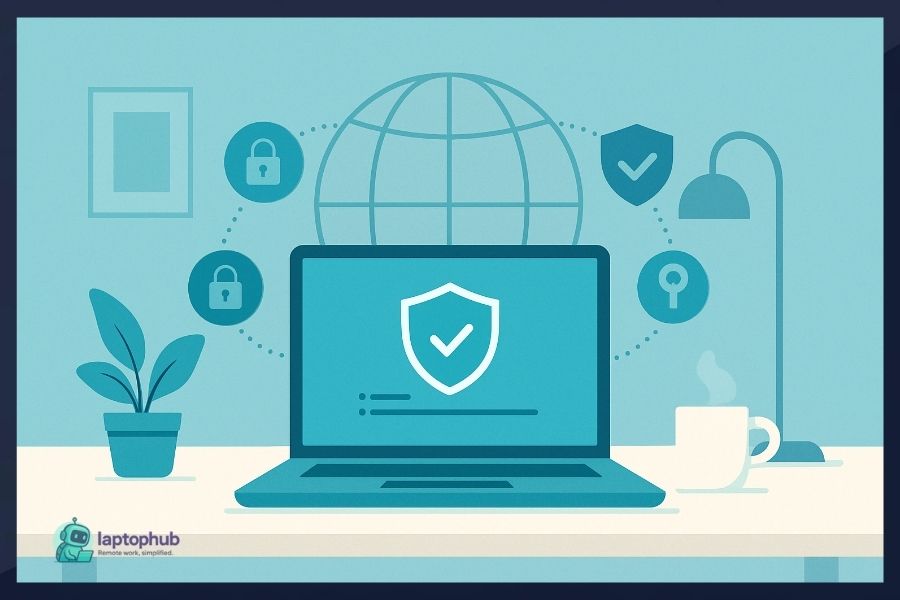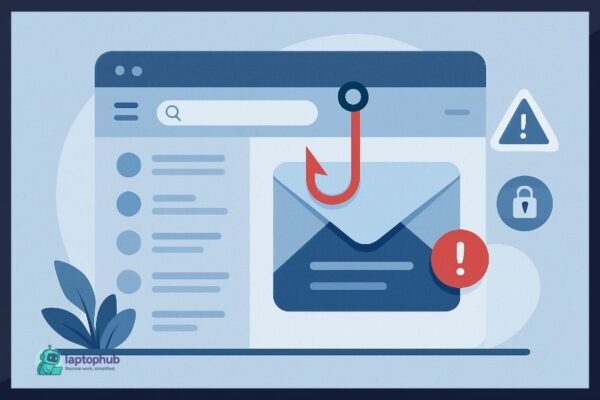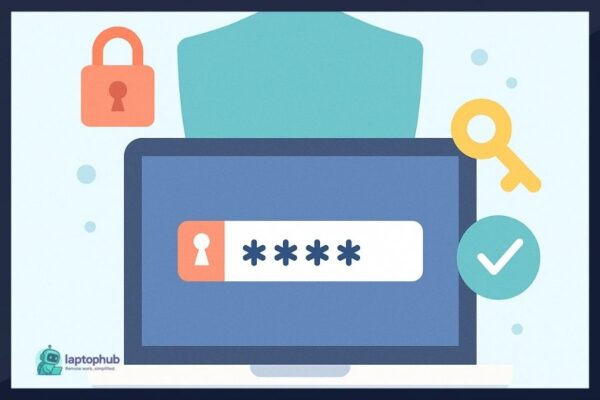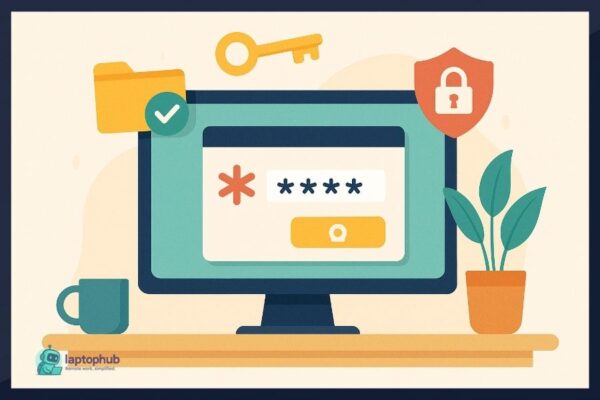As someone who’s spent over a decade in the SEO and cybersecurity trenches, I’ve worked with countless remote teams, freelancers, and digital nomads. And one question I hear all the time is: “Do I really need a VPN if I work remotely?” Short answer: yes, in most cases. But let’s not stop there. Let me walk you through the why, the why not, and which VPNs are worth your money.
💡Key takeaways:
- Remote workers face real security and privacy risks, especially on public Wi-Fi, making VPNs a smart protective measure.
- A VPN encrypts internet traffic, protects company data, and helps bypass geo-restrictions for global access.
- Not every remote worker needs a VPN full-time, but the added layer of security is often worth the minimal cost.
- Choosing the right VPN depends on your needs—speed, privacy, ease of use, and device support all play a role.
Why VPNs Matter for Remote Work
First, let’s clear the air. A VPN, or Virtual Private Network, encrypts your internet connection and routes it through a server in a different location. That simple act solves several problems remote workers deal with every day:
1. Public Wi-Fi is a security nightmare
If you work from cafes, airports, or coworking spaces, you’re at serious risk. Public Wi-Fi networks are easy to intercept. Hackers set up fake networks or use packet sniffers to grab data like passwords, emails, and even bank logins. A VPN encrypts your data, making it unreadable to anyone snooping on the same network.
2. Your company’s data needs protection
If you’re handling sensitive company info (customer data, financials, proprietary documents), you’re a potential weak link in the chain. Companies with strong cybersecurity policies often require VPN usage for this reason.
3. Geo-restrictions can get in your way
Some tools, platforms, or client sites may be blocked based on your IP location. A VPN helps you bypass those by connecting you through a server in a country that allows access.
4. Your ISP is watching
Even at home, your Internet Service Provider (ISP) logs what you do online. They may sell that data or throttle your speeds. A VPN hides your activity from them, too.
5. Remote work expands your digital footprint
The more you work online, the more you expose yourself. Using cloud apps, email, CRMs, and collaborative tools increases the number of potential entry points hackers can target. A VPN isn’t a silver bullet, but it’s a foundational defense layer that helps keep your activity private.
When a VPN Might Not Be Necessary
Let’s be real: not every remote worker needs a VPN 100% of the time. Here are some situations where you might not need one:
1. You only work on secure, password-protected home Wi-Fi
If you never leave your house and your Wi-Fi is encrypted with WPA3, your risk is lower. Still, your ISP can see your traffic unless you’re using HTTPS everywhere or a VPN.
2. You’re not dealing with sensitive data
Maybe you’re doing low-stakes work: writing blog posts, managing social media, or handling internal docs that aren’t confidential. In these cases, a VPN is more about privacy than security.
3. Your company already has a secure infrastructure
Some employers use their own encrypted tunnels, like corporate VPNs or virtual desktop environments. If you’re already protected by that ecosystem, adding your own VPN might not add value—and could even create conflict.
4. You’re using a privacy-respecting browser and tools
If you’re already using browsers like Brave, encrypted email providers, and secure DNS settings, you’re making great strides. A VPN will still add another layer, but if you’re ultra-minimal with risk, you may choose to go without it occasionally.
Pros of Using a VPN for Remote Work
1. Security
Your data is encrypted end-to-end. Even if someone intercepts it, they get gibberish.
2. Privacy
VPNs hide your IP address and browsing activity from your ISP, hackers, and sometimes even government surveillance.
3. Access
You can access geo-blocked services or tools, work while traveling abroad, or log into regional websites as if you were back home.
4. Peace of mind
Knowing your connection is protected lets you focus on work instead of worrying about who’s watching.
5. Better productivity for some users
VPNs with optimized servers can actually help with speed consistency by avoiding ISP throttling. This matters if you’re uploading large files or doing real-time work like video editing in the cloud.
🖥️Also read: Remote Work Productivity Tips for Building Focus and Beating Distractions
Cons of Using a VPN
1. Slower speeds
Because your data is bouncing through another server, things can slow down—especially if the VPN server is far from you.
2. Cost
Good VPNs aren’t free. You’re looking at anywhere from $3–$12/month, depending on the plan.
3. Complexity
Some VPNs aren’t beginner-friendly. Misconfigurations can leave you vulnerable or disconnected.
4. Blocked services
Some sites (like Netflix or certain banking apps) don’t play well with VPNs and may block you if they detect one.
5. False sense of security
A VPN doesn’t make you bulletproof. It won’t protect you from phishing emails, malware, or weak passwords. Think of it as one piece of the puzzle, not the entire solution.
How to Choose the Right VPN for Remote Work
I’ve tested dozens over the years—some great, some garbage. Here’s what I look for when recommending a VPN for remote workers:
- Speed: Can it handle Zoom calls, file uploads, and streaming?
- Security: AES-256 encryption, kill switch, DNS leak protection.
- No-logs policy: I want zero data stored on their end.
- Usability: Easy to install, simple UI, fast server switching.
- Device coverage: Supports laptops, phones, tablets, and maybe routers.
- Customer support: 24/7 live chat is a must.
- Jurisdiction: Look for companies based in privacy-friendly countries outside the 14 Eyes alliance.
My Top VPN Picks for 2025
| VPN Provider | Servers | Device Limit | No-Logs Policy | Encryption | Kill Switch |
|---|---|---|---|---|---|
| NordVPN | 5,800+ in 60 countries | 6 | Yes | AES-256 | Yes |
| ExpressVPN | Servers in 94 countries | 5 | Yes (RAM-only) | AES-256 | Yes |
| Surfshark | 3,200+ servers | Unlimited | Yes | AES-256 | Yes |
| Proton VPN | Limited free, premium available | 10 (on premium) | Yes | AES-256 | Yes |
| CyberGhost | 9,000+ servers | 7 | Yes | AES-256 | Yes |
1. NordVPN
Best for: All-around protection and speed
- 5,800+ servers in 60 countries
- AES-256 encryption
- Built-in malware blocker and ad blocker
- Dedicated IP available
- Excellent mobile apps
Why I like it: Consistently fast, reliable, and secure. Easy to use even if you’re not tech-savvy.
2. ExpressVPN
Best for: Privacy-focused professionals
- Servers in 94 countries
- RAM-only servers (no logs)
- AES-256 encryption
- Works in restrictive countries (like China)
- 24/7 live chat support
Why I like it: ExpressVPN is rock-solid when it comes to privacy and bypassing firewalls. It’s a little pricier, but you get what you pay for.
3. Surfshark
Best for: Budget-conscious freelancers
- Unlimited devices
- 3,200+ servers
- Built-in CleanWeb ad blocker
- Camouflage mode hides VPN usage
- Very affordable
Why I like it: If you’re working across multiple devices (like I do), Surfshark gives you great bang for your buck. Still solid on speed and security.
4. Proton VPN
Best for: Open-source advocates and journalists
- Created by the team behind ProtonMail
- Open-source apps
- Strict no-logs policy
- Free plan available with limited servers
- Secure Core servers for added anonymity
Why I like it: It’s built on transparency and ethics. If you’re dealing with sensitive communications or want to support privacy-first companies, this is a great choice.
5. CyberGhost
Best for: Beginners and casual users
- 9,000+ servers
- Easy setup and interface
- Streaming and torrent-optimized servers
- No-logs policy
- Dedicated profiles for different use cases
Why I like it: Perfect for those who want a “set it and forget it” VPN. Super user-friendly and reliable.
Bonus Tips for Using VPNs Effectively
- Turn on auto-connect so you don’t forget to enable it on public Wi-Fi.
- Use the kill switch to make sure your internet cuts off if the VPN connection drops.
- Update regularly to get the latest security patches.
- Avoid free proxies that claim to work like VPNs—they usually don’t encrypt data properly.
Free VPNs: Are They Worth It?
Let me be blunt: most free VPNs are trash. They’re either riddled with ads, log your data, or are too slow to be useful. That said, Proton VPN offers a free tier that’s decent for light use. Just know what you’re giving up in terms of speed and server choice.
Avoid VPNs that:
- Don’t have a clear no-logs policy
- Are based in countries with poor privacy laws
- Offer unlimited free service without a sustainable business model
FAQs
Do remote workers really need a VPN?
Yes, especially if they use public Wi-Fi, handle sensitive data, or care about online privacy.
Is a free VPN enough for remote work?
Most free VPNs aren’t secure or fast enough—only a few trusted ones like Proton VPN offer limited, reliable free options.
Will a VPN slow down my internet?
Possibly, but top VPNs are optimized for speed and may even prevent ISP throttling in some cases.
What’s the most secure VPN for remote work?
ExpressVPN and NordVPN both offer excellent security, no-logs policies, and fast global servers.
Can I use one VPN subscription on multiple devices?
Yes—many VPNs support multiple devices, and Surfshark even allows unlimited connections.
Final Word: Should You Use a VPN?
Here’s my take. If you:
- Ever work on public Wi-Fi
- Handle sensitive data
- Travel often
- Care about privacy
- Use cloud-based tools and platforms daily
Then yes, you absolutely need a VPN. It’s a small price to pay for a massive boost in security and peace of mind. Even if you’re working from home full-time, the added layer of protection is worth it.
As someone who lives in the overlap between SEO, tech, and remote work, I use a VPN every single day. It’s non-negotiable.
So if you haven’t already, pick one from the list above and start protecting yourself. Your data—and your clients—will thank you.





